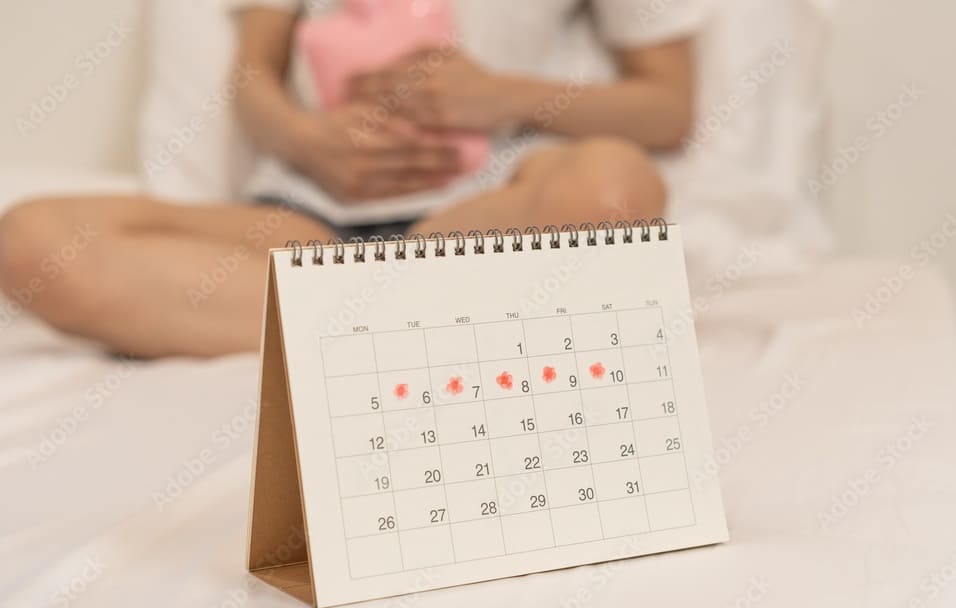Menstruation is a natural process, but let’s be real—it can be uncomfortable, exhausting, and sometimes downright painful. While cramps, bloating, and mood swings are common, some mistakes can actually make your period worse and even harm your health. Many of us unknowingly follow habits that increase discomfort or put us at risk of infections and hormonal imbalances.
10 Period Mistakes That Can Harm Your Health
To make your cycle smoother and healthier, avoid these 10 common mistakes during periods:
1. Skipping Meals or Eating Too Much Junk Food
Hormonal fluctuations during your period can make you crave sugary, salty, and processed foods. While it’s tempting to indulge in fast food, chips, or sweets, these foods can increase bloating, cause water retention, and worsen mood swings.
On the flip side, skipping meals can make you feel weak, dizzy, and irritable due to low blood sugar levels. Your body loses iron during menstruation, so it’s crucial to eat iron-rich foods to prevent fatigue.
Healthy choices:
- Leafy greens (spinach, kale)
- Iron-rich foods (lentils, chickpeas, fish, lean meat)
- Magnesium-rich foods (bananas, dark chocolate, nuts)
- Hydrating foods (cucumbers, watermelon, oranges)
2. Not Changing Pads, Tampons, or Menstrual Cups on Time
Wearing the same pad or tampon for too long creates a breeding ground for bacteria, increasing the risk of infections, rashes, and bad odor. In rare cases, leaving a tampon in for too long can lead to toxic shock syndrome (TSS), a life-threatening condition.
Best practices:
- Change pads every 4-6 hours
- Change tampons every 4-8 hours
- Clean menstrual cups every 8-12 hours and sterilize them properly
3. Neglecting Personal Hygiene
Poor hygiene during menstruation can lead to vaginal infections, skin irritation, and discomfort. Some people avoid showering because of cramps, but this can trap sweat, bacteria, and menstrual blood, leading to unpleasant odors.
Best practices:
- Wash your intimate area with warm water and mild, fragrance-free soap
- Avoid using douches or scented wipes as they can disrupt the vaginal pH
- Pat dry instead of rubbing to avoid irritation
4. Overexerting Yourself with Strenuous Exercise
While exercise can help relieve cramps and boost your mood, doing intense workouts like heavy lifting, HIIT, or prolonged running can make you feel fatigued and dehydrated. This can also lead to heavier bleeding in some cases.
Best workouts during periods:
- Light yoga or stretching
- Walking
- Gentle Pilates
- Low-impact strength training
5. Not Getting Enough Sleep
Sleep is essential for overall health, and during your period, your body works extra hard to regulate hormones and reduce pain. Lack of sleep can cause increased stress, fatigue, and heightened period cramps.
Tips for better sleep:
- Avoid caffeine in the evening
- Take a warm bath before bed
- Use a heating pad to relax muscles
- Try deep breathing or meditation
6. Taking Too Many Painkillers
Painkillers like ibuprofen or naproxen are helpful for managing period cramps, but overusing them can lead to stomach ulcers, kidney issues, or liver problems. If you find yourself relying on painkillers every cycle, it’s best to consult a doctor to check for underlying issues like endometriosis or PCOS.
Alternative pain relief methods:
- Warm herbal teas (ginger or chamomile)
- Applying a heating pad to the lower abdomen
- Gentle massages with essential oils (lavender or peppermint)
7. Ignoring Unusual Symptoms
It’s easy to dismiss period irregularities as “just hormones,” but certain symptoms can be warning signs of health conditions. If you experience heavy bleeding that soaks through pads/tampons within 1-2 hours, extremely painful cramps, or irregular cycles, it’s important to get checked.
Signs you should not ignore:
- Periods lasting longer than 7 days
- Heavy clotting or extreme pain not relieved by medication
- Missed periods or sudden cycle changes
- Spotting between periods
Possible causes: PCOS, endometriosis, fibroids, thyroid disorders, or hormonal imbalances.
8. Wearing Tight Clothing
Tight jeans, shapewear, or synthetic underwear trap heat and moisture, creating a perfect environment for bacteria and yeast infections. It can also worsen bloating and discomfort.
Better choices:
- Opt for cotton underwear to allow breathability
- Wear loose, comfortable clothing
- Choose soft waistbands to avoid pressing on your bloated belly
9. Drinking Alcohol or Smoking
Alcohol and smoking can worsen period symptoms by affecting blood circulation and increasing inflammation.
Why to avoid them:
- Alcohol can cause dehydration, bloating, and mood swings
- Smoking can restrict blood flow, leading to worse cramps
- Both can interfere with hormone levels and prolong PMS symptoms
10. Ignoring Your Mental Health
Mood swings, anxiety, and irritability are common due to hormonal shifts. However, ignoring your emotions or bottling up stress can increase cortisol levels, making your period symptoms worse.
Ways to improve mental well-being:
- Take short breaks if you’re feeling overwhelmed
- Engage in self-care activities like reading, journaling, or skincare
- Talk to a friend or loved one if you’re feeling down
- Try meditation, deep breathing, or guided relaxation apps
Final Thoughts
Your period is a natural process, and taking care of yourself during this time is essential for your overall well-being. Avoiding these mistakes will not only make your menstrual cycle more comfortable but also help you maintain better reproductive health.
Also Read:
